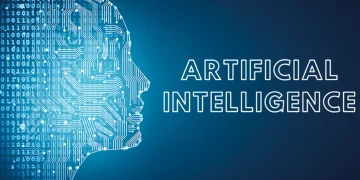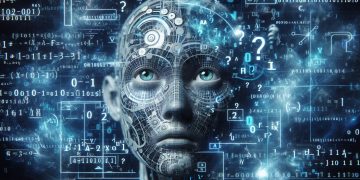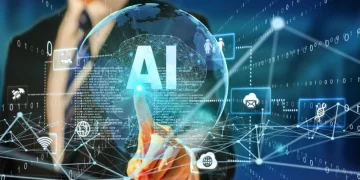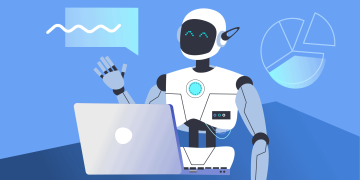Introduction: The Age of Computation as Civilization’s Core
For millennia, the trajectory of human civilization has been tightly bound to the resources we could harness: fire, water, fossil fuels, electricity. Each new form of energy redefined societies, economies, and geopolitics. Today, we are entering a new epoch—an era where computing power itself becomes civilization’s central resource.
This is more than faster processors or larger data centers. Next-generation computing power is the infrastructure of thought, decision, and innovation, shaping our culture, our cities, and even our concept of humanity. This article explores how the next phase of computing will transform not only technology but the very fabric of human civilization.
1. Computing as the Fourth Pillar of Civilization
Historically, agriculture, industrialization, and energy defined societal growth. In the 21st century, computation is emerging as a fourth pillar—parallel to energy, capital, and knowledge.
1.1 Computation as an Economic Force
- Computing power amplifies productivity by automating tasks, optimizing logistics, and accelerating scientific discovery.
- Nations with superior computational infrastructure gain competitive advantages in AI, healthcare, finance, and defense.
1.2 Geopolitical Significance
- Control over computing power is now equivalent to control over strategic resources.
- Supercomputing, cloud infrastructure, and AI research hubs are concentrated in a few countries, shaping international influence in ways akin to the oil-rich nations of the 20th century.
1.3 From Resource to Right
- Access to computation is becoming a social justice issue. Equitable distribution of AI and high-performance computing will determine whether all societies can participate in the next wave of global innovation.
2. Architectures of the Future: Beyond Classical Machines
As silicon approaches its physical limits, the next generation of computation relies on diverse paradigms: quantum, neuromorphic, optical, and biologically-inspired systems.
2.1 Quantum Paradigm
- Quantum computing allows simultaneous exploration of countless possibilities, enabling breakthroughs in cryptography, drug discovery, and climate modeling.
- Hybrid systems, combining classical and quantum processors, create adaptable platforms capable of solving previously intractable problems.
2.2 Neuromorphic and Brain-Inspired Design
- Neuromorphic chips mimic synaptic networks, consuming minimal energy while supporting continuous learning.
- These architectures enable autonomous machines and edge devices to operate in dynamic environments, from self-driving vehicles to intelligent robots.
2.3 Photonics and Energy Efficiency
- Optical computing replaces electrons with photons, reducing heat generation and improving speed.
- Energy-aware architectures ensure sustainability, linking the development of computation with ecological responsibility.
3. The Convergence of Computation and Society
Computation is no longer confined to machines—it is becoming woven into the social, cultural, and urban fabric.
3.1 Smart Cities as Cognitive Systems
- Future cities will operate as living computational networks, with transportation, energy, and healthcare systems coordinated in real time.
- AI-driven predictive models will optimize urban flows, reduce congestion, and anticipate environmental challenges.
3.2 Education and Human Development
- Computational tools enable personalized learning at scale, adapting curricula to each student’s abilities and interests.
- Societies that leverage high-performance computing in education will cultivate talent capable of thriving in increasingly complex technological environments.
3.3 Work and Labor Transformation
- AI and autonomous systems will automate routine tasks, but human ingenuity will remain crucial.
- The next era emphasizes creative, strategic, and ethical decision-making, while computation handles optimization, analysis, and logistics.
4. Ethical and Philosophical Dimensions
The rise of ubiquitous computation prompts profound ethical and philosophical questions.
4.1 Autonomy and Control
- Machines capable of autonomous reasoning raise questions of accountability.
- Who is responsible when a quantum-enabled AI system makes a critical error in healthcare, transportation, or financial markets?
4.2 Human-Centered Design
- Civilization must design computing systems that augment human intelligence rather than dominate it.
- Ethical frameworks must integrate fairness, transparency, privacy, and sustainability into the core of computational architectures.
4.3 Consciousness and Cognitive Machines
- Neuromorphic and bio-computing systems blur the line between artificial and natural cognition.
- While true machine consciousness may remain speculative, the philosophical implications of machines capable of adaptive learning challenge our definitions of intelligence and life.
5. Environmental Sustainability and Computational Ecology
With the exponential growth of AI and digital infrastructure, computation’s energy footprint cannot be ignored.
5.1 Green Data Centers
- Hyperscale centers powered by renewable energy are essential for sustainable growth.
- Innovations such as liquid cooling, intelligent workload scheduling, and integration with renewable grids reduce carbon emissions.
5.2 Carbon-Aware Algorithms
- AI models are being designed for energy efficiency: model pruning, quantization, and federated learning reduce computation while maintaining performance.
- In the future, computational “carbon accounting” will become standard, measuring energy cost per operation as a key metric of technological responsibility.
5.3 Planetary-Scale Feedback Loops
- Intelligent computation enables global monitoring and response to environmental changes.
- Climate modeling, disaster prediction, and energy grid optimization demonstrate how computation can become both a challenge and solution for sustainable civilization.

6. The Global Computing Ecosystem
The next generation of computing power exists within a global ecosystem that spans governments, corporations, research institutions, and civil society.
6.1 Infrastructure and Accessibility
- Cloud, edge, and hybrid networks form the backbone of the intelligent economy.
- Equal access to computational resources is essential to prevent a “digital divide” that could exacerbate socioeconomic inequality.
6.2 Cooperation and Competition
- International collaboration in quantum research, AI safety, and cybersecurity must coexist with competitive strategies for strategic advantage.
- Agreements akin to nuclear non-proliferation treaties may be necessary for high-risk computational technologies.
6.3 Regulation and Governance
- Transparent standards for AI deployment, data usage, and energy efficiency will define ethical civilization in the computational age.
- Policies must balance innovation, security, and equity to ensure that computing power serves humanity rather than enslaves it.
7. Imagining the Future: Civilization Integrated with Intelligence
The ultimate trajectory of next-generation computing is integration into every aspect of human life.
7.1 Cognitive Infrastructure
- Infrastructure will be intelligent, self-optimizing, and predictive.
- Transportation networks, power grids, and healthcare systems will operate autonomously while remaining under human ethical oversight.
7.2 Collective Intelligence
- Distributed computation enables societies to act with enhanced foresight, planning, and adaptability.
- Just as early cities emerged as cooperative energy systems, tomorrow’s societies will emerge as cooperative cognitive systems.
7.3 Redefining Humanity
- With computation deeply embedded into daily life, the distinction between humans and machines will blur.
- Future civilization may require rethinking identity, responsibility, and creativity, as intelligence becomes a shared property of biological and artificial agents.
Conclusion: Stewarding Computation for Civilization
The next stage of computing power is more than a technological milestone—it is a societal inflection point. Civilization now faces the task of integrating computation responsibly, aligning intelligence with ethical, environmental, and cultural values.
The machines we build are mirrors of our collective ambition. They will extend our cognition, amplify our creativity, and reveal the complexity of our world. But they will also test our wisdom, ethics, and ability to govern powerful tools for the common good.
In the era of infinite processing, humanity must not only compute faster but think deeper. The measure of success will be the civilization we construct—a civilization that balances speed with sustainability, efficiency with ethics, and power with purpose.











































